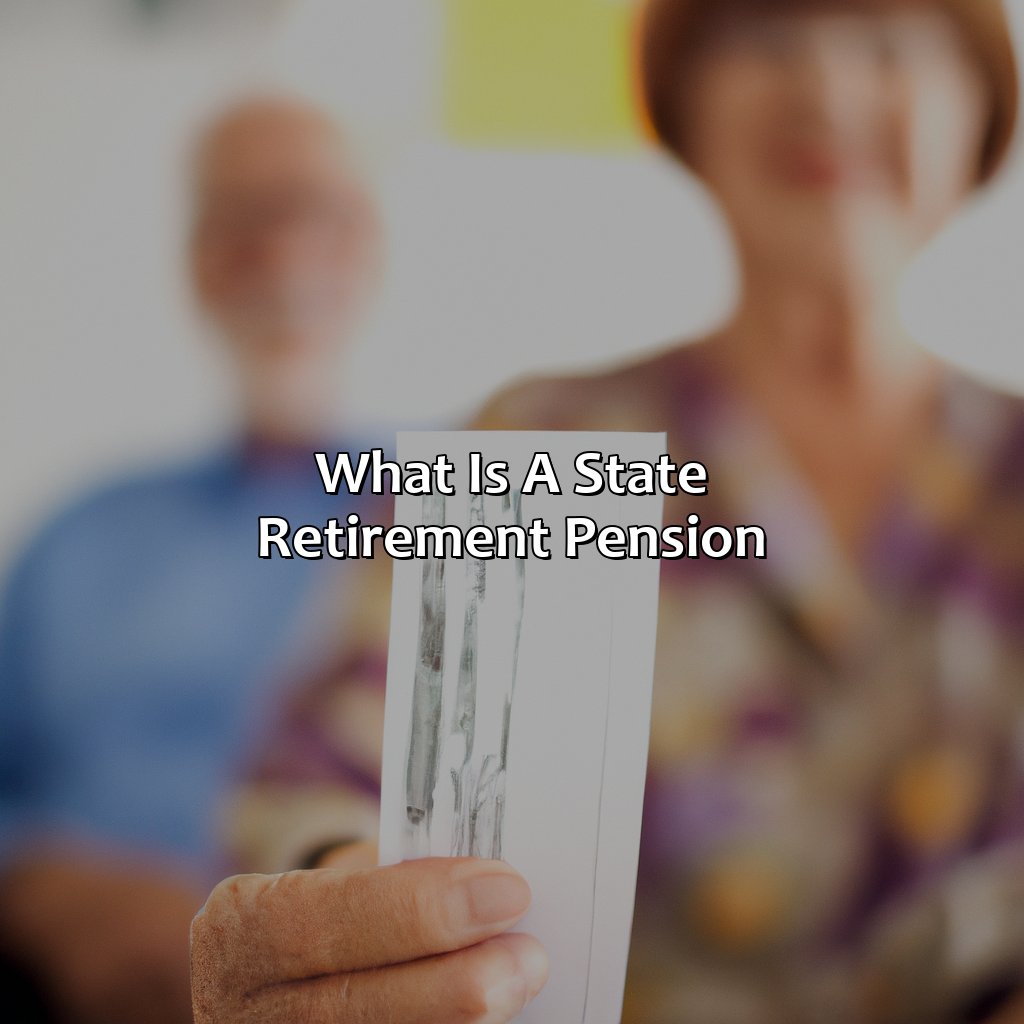What Is A State Retirement Pension?
Key Takeaway:
- A State Retirement Pension is a regular income paid to eligible individuals who have reached State Pension age. It is a basic payment that is designed to provide financial support during retirement.
- To be eligible for a State Retirement Pension, an individual must have paid National Insurance contributions for a certain length of time. They must also reach State Pension age.
- The amount of State Retirement Pension an individual receives is dependent on their National Insurance record. The more contributions they have made, the higher their pension will be. Other factors such as voluntary contributions, deferring payments, and receiving other benefits can also affect the calculation of the pension.
Are you worried about how you will finance your later years? You’ll be glad to know that the government provides a state retirement pension to help you in your retirement. This article will explain what a state retirement pension is and how you can get one.
What is a State Retirement Pension?
A State Retirement Pension is a regular payment made by the government to individuals who have reached a certain age or fulfilled specific criteria. This pension aims to provide financial support to retired individuals who are no longer earning income from employment. The amount of pension received depends on various factors, such as the individual’s contributions to the pension scheme and their state pension age. Additionally, eligibility criteria and payment amounts may change over time, and individuals are encouraged to stay informed. According to a study by Vanguard, the State Retirement Pension scheme covers about 90% of the UK’s working population.
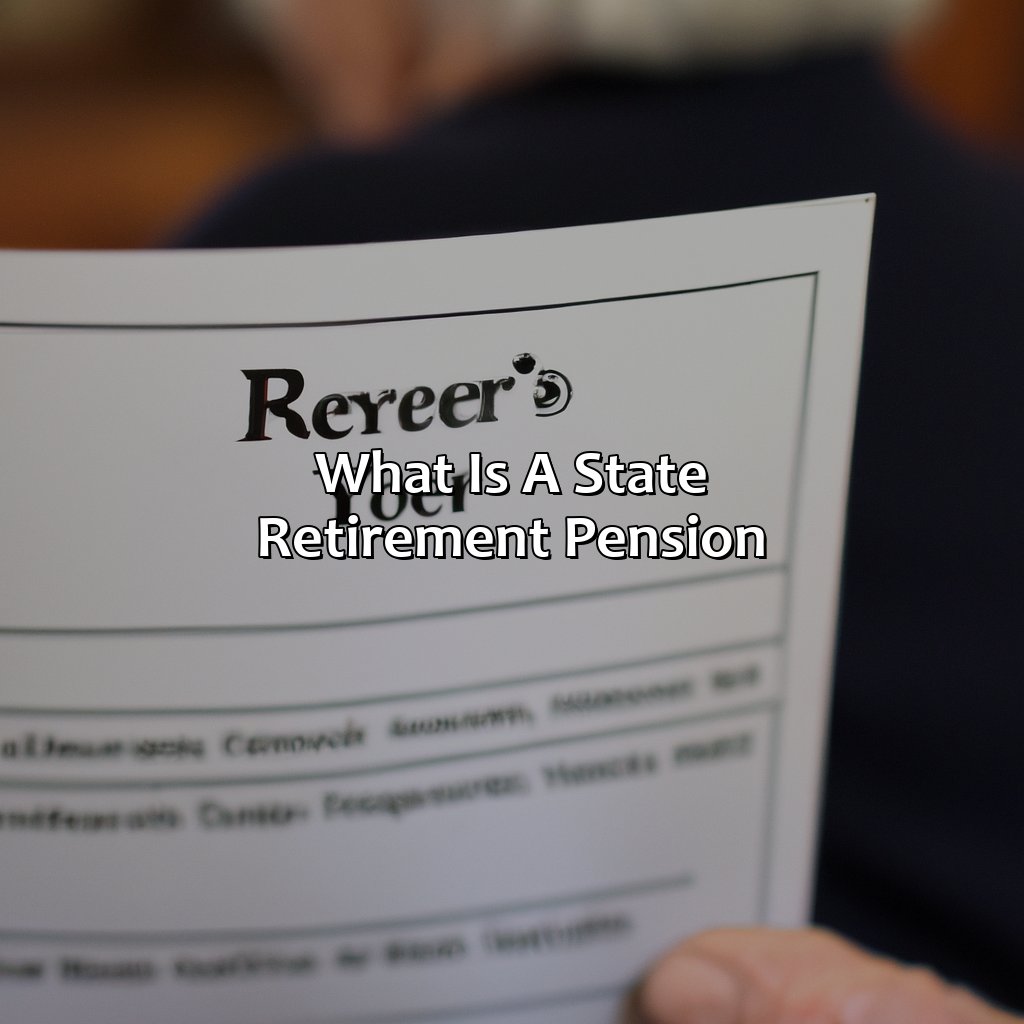
Image credits: retiregenz.com by Yuval Washington
Eligibility for State Retirement Pension
In order to receive State Retirement Pension, individuals must meet certain criteria. This includes having paid enough National Insurance contributions and being of State Pension age. The amount received is based on the number of years of contributions. It is important to note that those who have reached State Pension age before 6 April 2016 may be eligible for a different pension plan.
Additionally, it is possible to increase the amount of State Retirement Pension by deferring receiving it. This can result in an increase of 1% for every nine weeks delay, calculating to a possible 5.8% increase per year. Another option is to apply for National Insurance credits when unable to work, for example due to illness or caring responsibilities.
It is recommended to check eligibility and pension entitlement regularly as it may change over time. It is also important to inform the government of any changes that may affect eligibility or entitlement. Seeking professional advice can also be useful in determining the best retirement plan.
Overall, understanding eligibility for State Retirement Pension is an essential part of retirement planning. Meeting the criteria and taking advantage of options such as deferring or applying for credits can increase entitlement and lead to a more secure retirement.
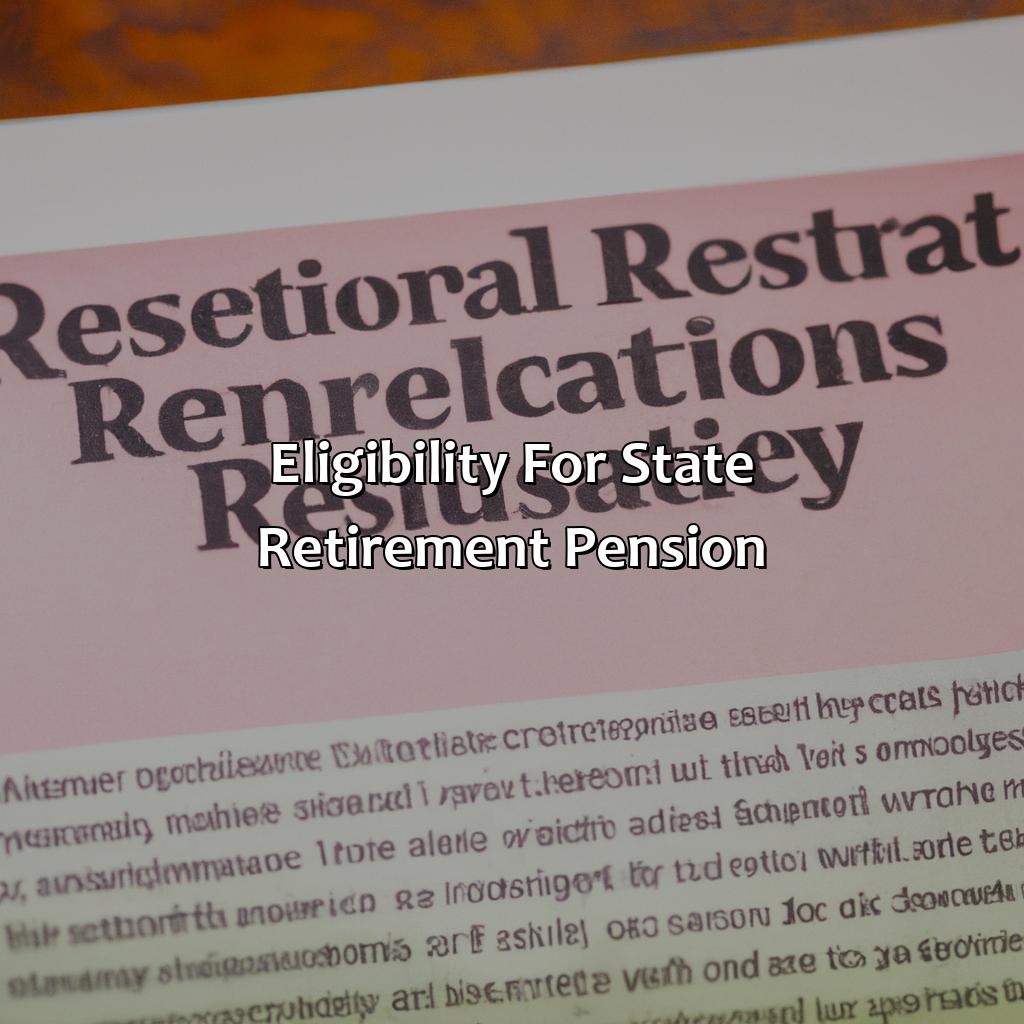
Image credits: retiregenz.com by Harry Woodhock
Calculation of State Retirement Pension
A professional explanation of the state retirement pension calculation includes a breakdown of factors that are considered in determining the payment amount. The calculation depends on the individual’s earnings history, age, and the number of years they have paid into the system.
The following table presents the factors used in calculating the state retirement pension.
| Factor | Description |
|---|---|
| Average Indexed Monthly Earnings (AIME) | The average of an individual’s highest 35 years of earnings, adjusted for inflation |
| Primary Insurance Amount (PIA) | The base amount of the individual’s monthly benefit, calculated using a formula based on their AIME |
| Full Retirement Age | The age at which an individual is eligible for their full benefit amount, based on their year of birth |
| Early Retirement Reduction Factor | Amount by which the monthly benefit is reduced if an individual begins collecting benefits before their full retirement age |
| Delayed Retirement Credits | Amount by which the monthly benefit is increased if an individual delays collecting benefits beyond their full retirement age |
It’s essential to note that individuals may receive additional benefits based on factors such as spousal or survivor benefits.
Pro Tip: Maximizing your state retirement pension requires strategic planning and understanding the factors that impact the amount you receive. Consider consulting with a financial advisor to ensure you make the most of your retirement benefits.
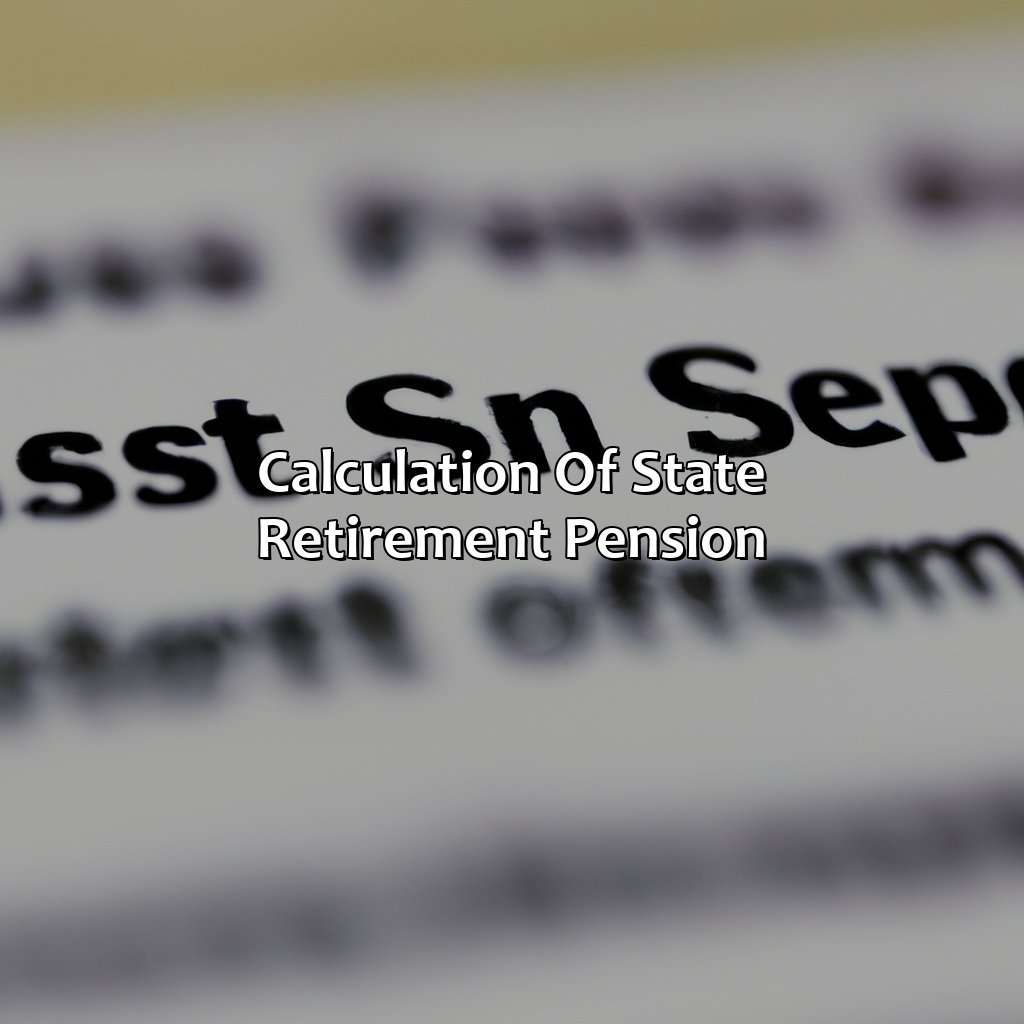
Image credits: retiregenz.com by James Duncun
How to Claim State Retirement Pension
The Process of Retrieving Your State Retirement Pension
To claim your state retirement pension, you must follow the necessary steps to receive the financial benefits you’re entitled to. Here’s a quick breakdown of what you need to do:
- Check Your Qualifications: Verify your eligibility for the state retirement pension, so you know what amount you’ll receive.
- Find Your National Insurance Number: Ensure that you have your National Insurance Number at the ready since it will be required during the application process.
- Gather Relevant Documents: Collect any necessary documentation such as identification, proof of income, and your P45 or P60.
- Apply Online or by Phone: You can apply for your state pension online or by calling the pension service line.
- Wait for Confirmation: Once your application has been received, you’ll receive confirmation and an estimated date for your pension payments to commence.
- Receive Your Payments: When everything is squared away, you’ll begin receiving your state retirement pension payments.
It’s important to note that the state retirement pension amount varies based on each individual’s unique situation. Checking your eligibility and applying sooner can ensure that you receive the maximum financial benefit possible.
If you’re looking to increase your pension amount even further, consider making additional contributions by voluntary deductions. These can help boost your entitlements, leading to more financial security in your later years.
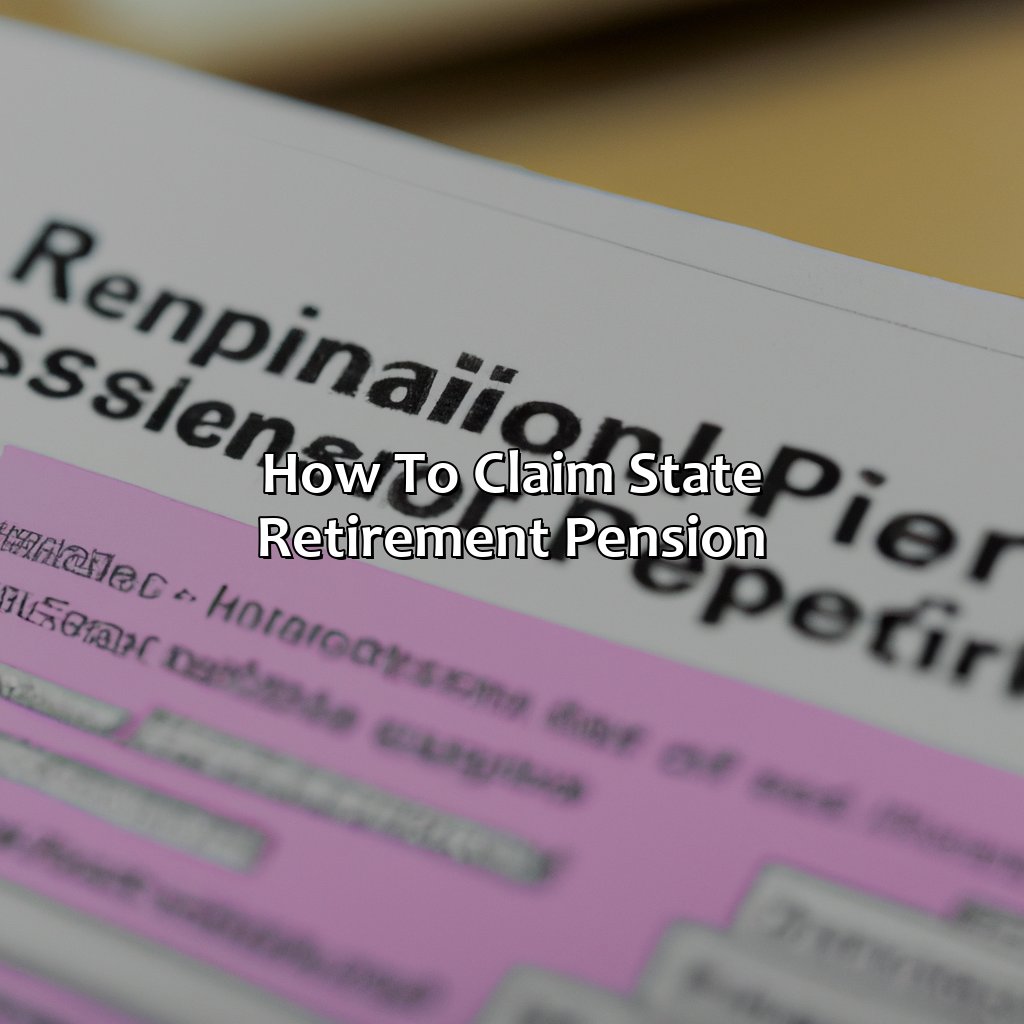
Image credits: retiregenz.com by Harry Washington
State Retirement Pension and Other Benefits
State retirement pension is a financial benefit provided by the government to individuals who have reached the retirement age. Along with this, the government also offers other benefits like disability benefits and bereavement benefits. These benefits are meant to provide financial security to retirees when they’re no longer working.
It’s important to note that the amount of state retirement pension one receives depends on factors such as National Insurance contributions, earnings, and the number of years of work. Additionally, it’s recommended to check the eligibility criteria for each individual benefit as they may vary.
It’s suggested to plan and save for retirement early on. A pension scheme is a great option to consider as it allows individuals to save for their retirement while also receiving tax benefits. It’s also recommended to assess and manage any non-mortgage debts to ensure financial stability during retirement.
Overall, state retirement pension and other benefits are meant to provide financial security to retirees. Planning and saving early on can help ensure a comfortable retirement.

Image credits: retiregenz.com by Yuval Jones
State Retirement Pension and Private Pensions
State retirement pensions and private pensions are two common options available to many individuals as retirement approaches. Understanding the differences between them is crucial.
State retirement pensions are provided by the government and are based on the individual’s national insurance contributions. The amount paid depends on the number of contributions made and the individual’s retirement age. State retirement pensions are an entitlement and are guaranteed by the government, and are not at risk of investment losses.
Private pensions, on the other hand, are offered by employers or personally taken out by the individual. The amount paid depends on the value of the pension fund, which is invested in the stock market. These pensions are not an entitlement and are subject to market risks.
If an individual has both a state retirement pension and a private pension, they can combine the two by taking the state pension as the base and using the private pension to increase their income further. However, there are rules and restrictions, and it’s essential to seek professional advice.
It’s crucial to point out that many people have misconceptions about state retirement pensions, such as assuming they can only claim at a specific age or that they are only available to UK citizens. The truth is that anyone who has made national insurance contributions for ten years or more can be eligible.
A former colleague discovered the benefits of a state pension when he returned to the UK after working abroad. As he had worked and paid national insurance contributions for many years previously, he was entitled to a substantial sum. He had not known this and was grateful to discover the potential boost to his retirement income.
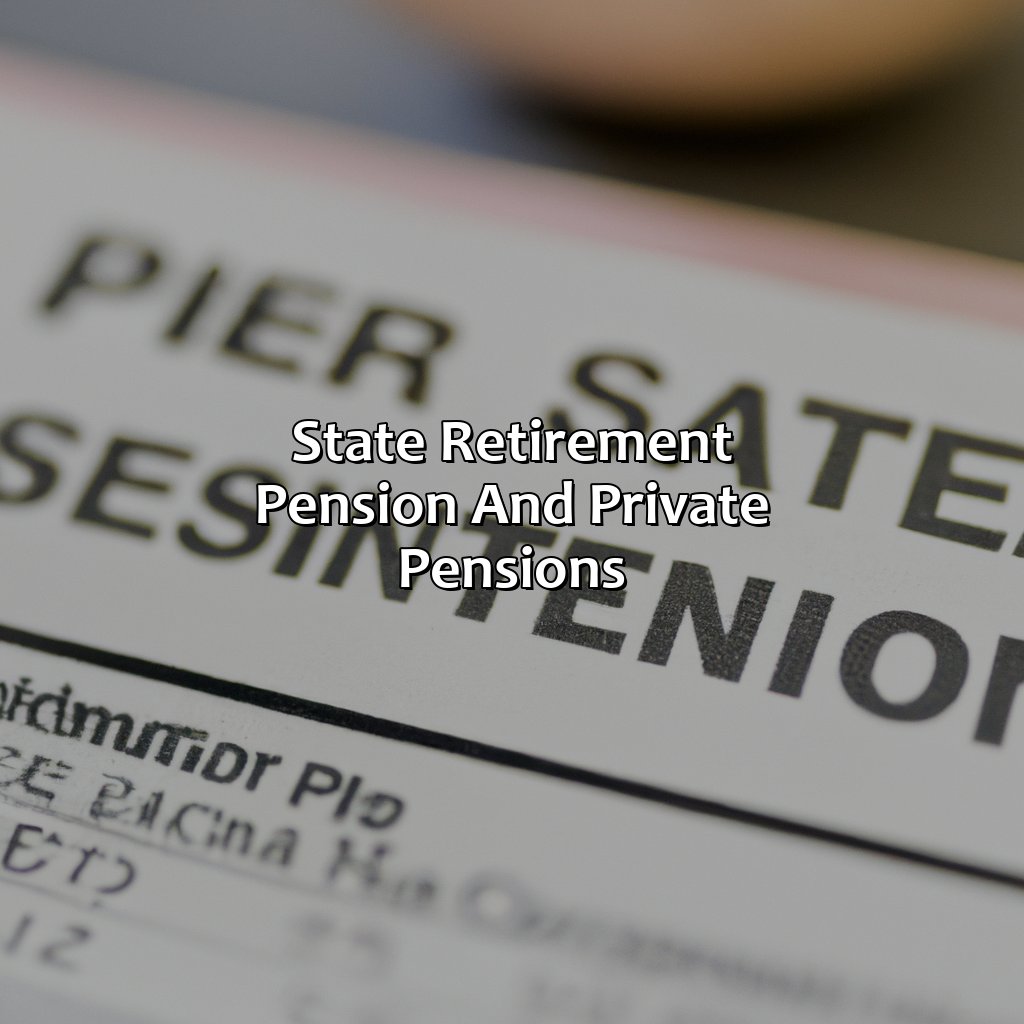
Image credits: retiregenz.com by David Duncun
Changes to State Retirement Pension Age
With recent changes to the age at which you can receive a State Retirement Pension, it’s important to understand what this means for you. When can you retire and start receiving pension payments?
The State Retirement Pension Age has been gradually increasing, with the goal of keeping up with longevity rates and ensuring sustainability of the pension system. This means that people born after a certain date will have to wait longer before they can start receiving pension payments. The exact age varies depending on your birth date and gender.
It’s worth noting that the State Retirement Pension is just one aspect of retirement planning, and it may not be enough to support the lifestyle you want. It’s important to consider other sources of income and savings, such as private pensions or investments, to supplement your retirement income.
Sarah had always assumed that she would be able to retire at 65 and start receiving her State Retirement Pension. However, due to the recent changes in the pension age, she found out that she would have to wait an additional two years before she would be eligible to receive payments. This news forced her to reevaluate her retirement plans and invest in additional savings to ensure she could still achieve her financial goals.
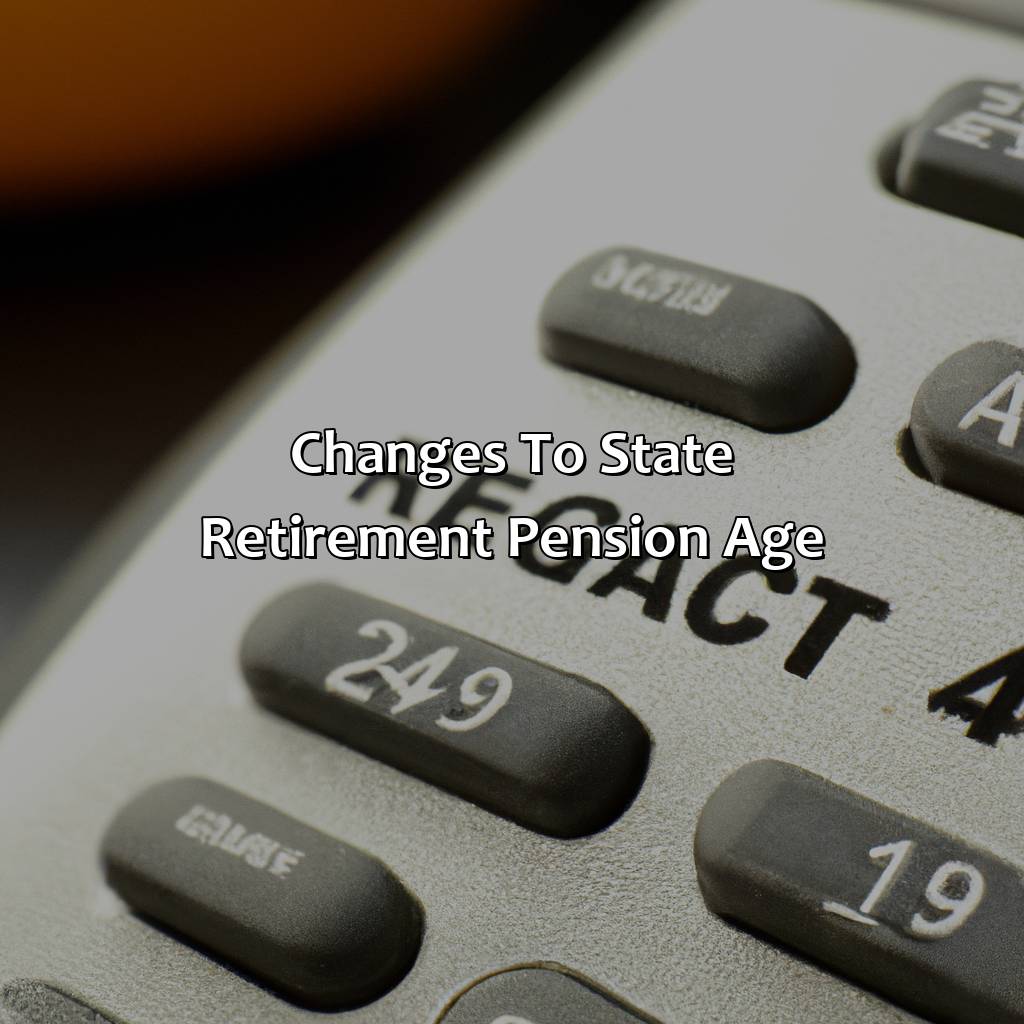
Image credits: retiregenz.com by Adam Arnold
State Retirement Pension and Taxation
A state retirement pension is a regular income from the government given to individuals who have reached retirement age and have made national insurance contributions. The amount of the pension varies based on the number of qualifying years of contributions made.
The state retirement pension is taxable, and tax is deducted from the pension before it is paid to the recipient. It is important to note that this pension is not means-tested, so anyone who has made the qualifying contributions is entitled to receive it. In addition, it is possible to continue working while receiving the state retirement pension.
Pro Tip: It is advisable to check with a financial advisor to understand how the state retirement pension will affect an individual’s overall retirement income plan.
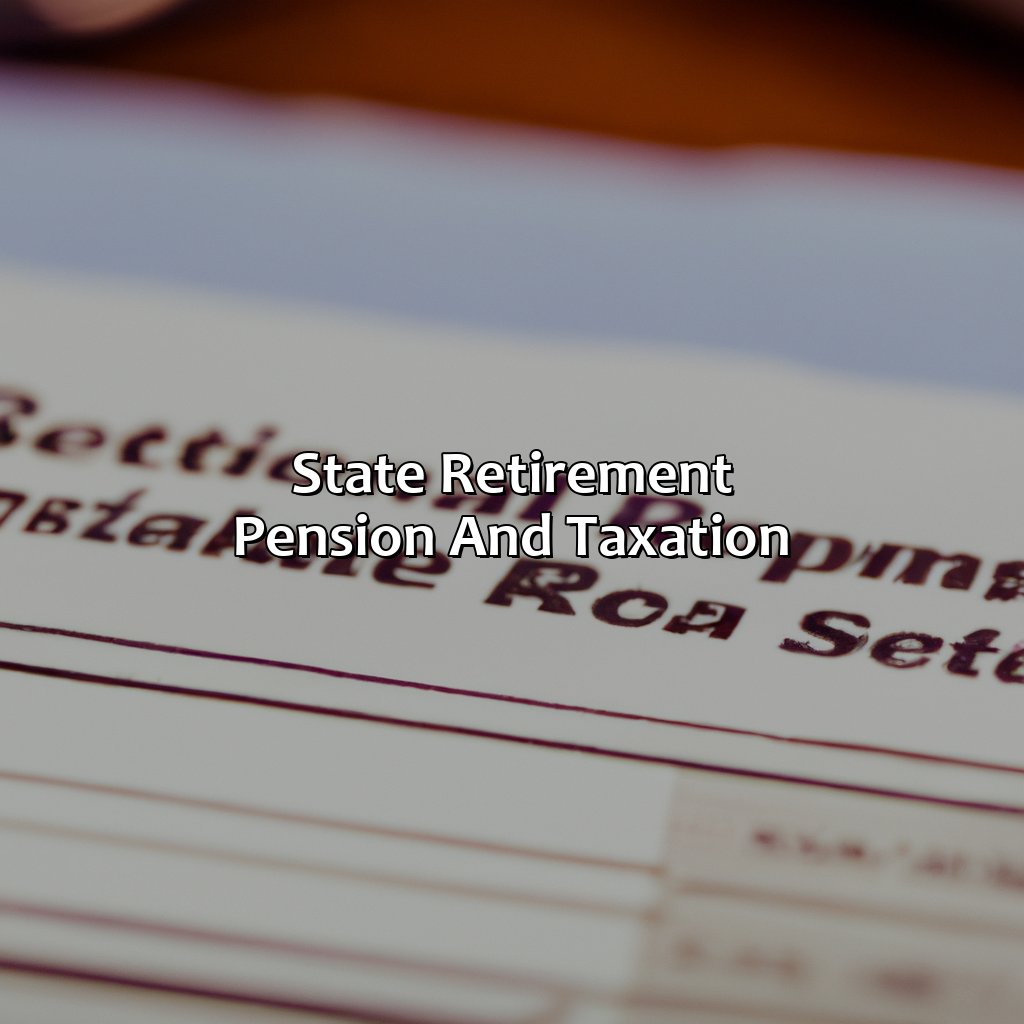
Image credits: retiregenz.com by Joel Duncun
State Retirement Pension and Overseas Residence
Retiring abroad may affect your eligibility for a State Retirement Pension, depending on the country you choose to reside in. To receive a full State Retirement Pension, you must have paid enough National Insurance contributions in the UK. If you move abroad, your eligibility may be impacted, and you may only be entitled to a partial pension or no pension at all. The amount you receive will depend on the country you live in and the number of years you have contributed to the UK National Insurance system.
It’s crucial to seek professional advice before moving abroad, and to inform the relevant authorities to avoid any disruption in your pension payments. Additionally, some countries have agreements with the UK, allowing you to claim certain benefits while living overseas. Check if the country you are moving to has such an agreement.
One pensioner living in Spain didn’t realise that he was only entitled to a partial pension until he received his first payment. He had contributed to his UK National Insurance for 30 years, but because he had moved to Spain, he was only entitled to a small portion of the State Retirement Pension. Seeking professional advice before the move could have helped him plan his retirement more effectively.
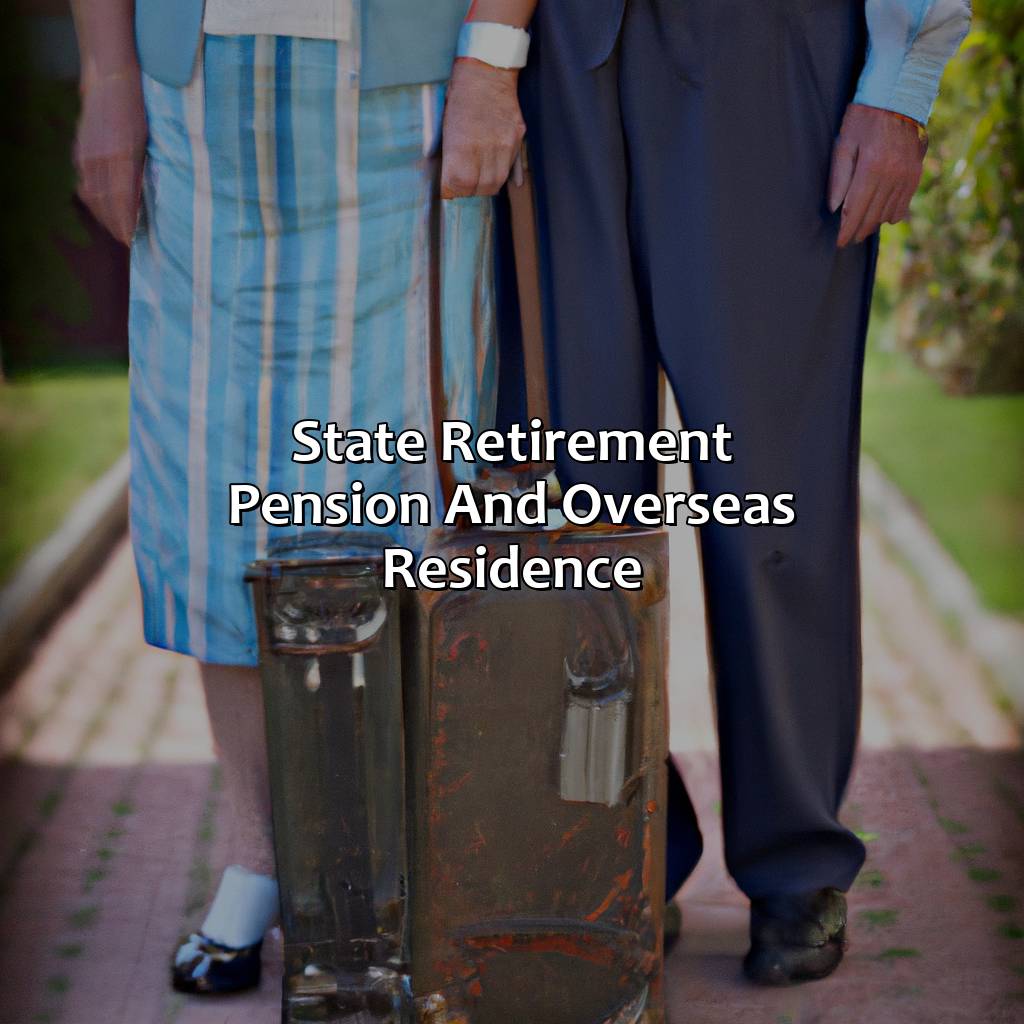
Image credits: retiregenz.com by Yuval Arnold
Five Facts About State Retirement Pension:
A state retirement pension is a regular payment made to eligible individuals by the government. (Source: Gov.uk)
The amount of state retirement pension you receive depends on your National Insurance record. (Source: Age UK)
To qualify for state retirement pension, you must have made National Insurance contributions for a minimum period. (Source: Pensions Advisory Service)
State retirement pension age is gradually increasing, and will reach 67 for both men and women by 2028. (Source: Money Advice Service)
It’s possible to defer your state retirement pension, meaning you can receive higher payments when you eventually claim it. (Source: Which?)
FAQs about What Is A State Retirement Pension?
What is a state retirement pension?
A state retirement pension is a regular payment provided by the government to eligible individuals who have reached the retirement age. It is designed to provide a basic source of income to support pensioners’ living expenses after they retire from work.
Who is eligible for a state retirement pension?
Generally, individuals who have reached the state pension age, which is currently 66 for both men and women in the UK, and have paid enough National Insurance contributions (NICs) throughout their working life are eligible for a state retirement pension. However, eligibility criteria may vary depending on individual circumstances.
How much is the state retirement pension?
The amount of the state retirement pension depends on various factors, including your National Insurance record, your age, and when you reached your pension age. The full basic state pension is currently £179.60 per week for the tax year 2021/2022, but you may receive less if you have not paid enough NICs or if you have opted out of the State Second Pension.
When can I claim my state retirement pension?
You can start receiving your state retirement pension when you reach the state pension age. The state pension age is gradually increasing in the UK, and it is important to check your eligibility and pension age based on your birthdate. You can also defer your pension for a certain period and receive a higher weekly payment, but you need to claim it within a certain time frame.
Can I receive a state retirement pension if I live abroad?
Yes, you may still be eligible for a state retirement pension if you have paid enough NICs and meet certain conditions even if you live abroad. However, the amount you receive may vary depending on where you live, and you may need to inform the government of your new address and bank details.
What should I do if I have not paid enough NICs for a state retirement pension?
If you have not paid enough NICs for a state retirement pension, you may be able to make voluntary contributions to increase your entitlement. You may also be eligible for other pension schemes or benefits, such as the Pension Credit or the Savings Credit, depending on your income and circumstances. You should seek advice from a financial advisor or the government’s Pension Service to explore your options.
 Checkout this IRS Loophole
Checkout this IRS Loophole 
